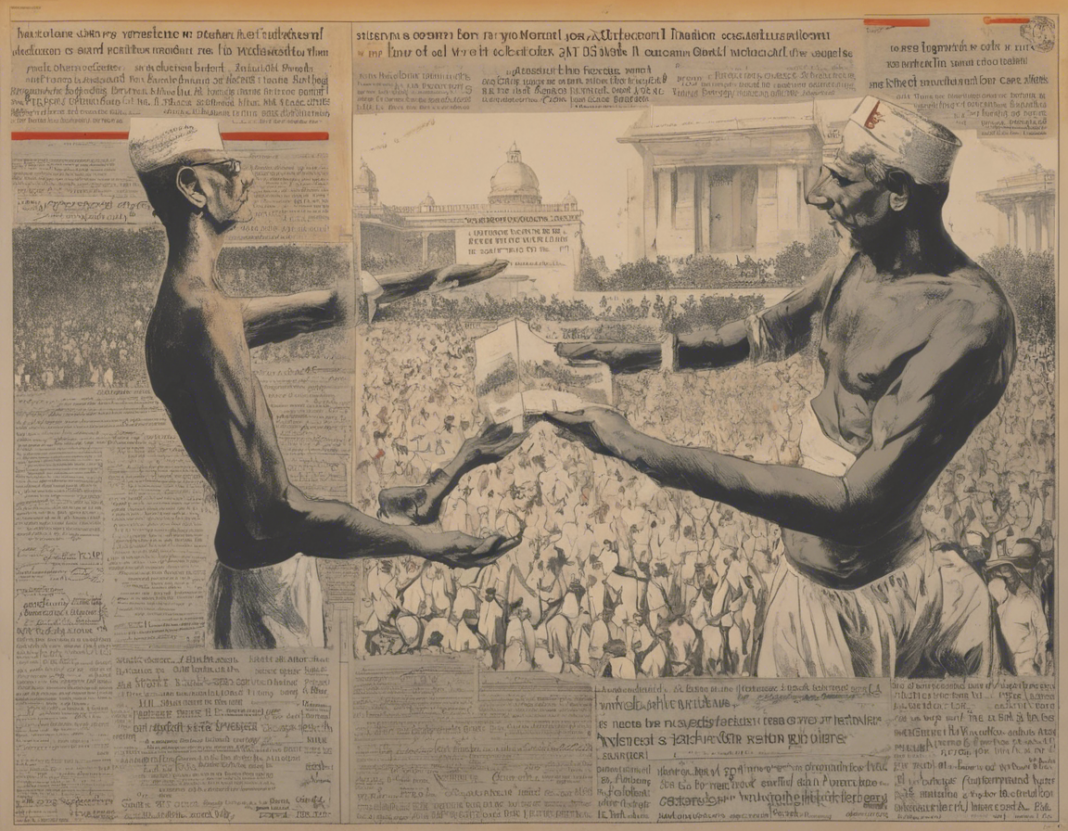In a diverse country like India, secularism holds significant importance in maintaining harmony and ensuring the rights and freedoms of all citizens regardless of their religious beliefs. The concept of secularism in India is enshrined in the Constitution which ensures the separation of state and religion, and mandates equal treatment of all religions by the government. In this article, we will delve into the key constitutional provisions pertaining to secularism in India.
Historical Background of Secularism in India
India has a long history of religious pluralism and tolerance, with various religions coexisting peacefully for centuries. The idea of secularism in the Indian context was first articulated during the freedom struggle, with leaders like Mahatma Gandhi and Jawaharlal Nehru advocating for a secular state that respects all religions. The framers of the Indian Constitution were deeply influenced by these ideals and sought to enshrine secularism as one of the fundamental principles of the nation.
Constitutional Provisions on Secularism
1. Preamble of the Constitution
The Preamble of the Indian Constitution declares India to be a “Sovereign Socialist Secular Democratic Republic”, highlighting the importance of secularism as a guiding principle of the state. The term ‘secular’ was added to the Preamble by the 42nd Amendment Act of 1976, emphasizing the secular character of the Indian state.
2. Fundamental Rights
The Constitution guarantees every citizen the right to freedom of religion under Article 25-28. It ensures the freedom to profess, practice, and propagate any religion of choice. The state is mandated to maintain religious neutrality and cannot discriminate against any citizen on the basis of religion.
3. Directive Principles of State Policy
The Directive Principles of State Policy, enshrined in Part IV of the Constitution, emphasize the state’s duty to promote social justice and harmony. Article 44 of the DPSP advocates for a Uniform Civil Code as a means to promote secularism and gender equality.
4. Equality Before Law
Article 14 of the Constitution ensures that the state shall not deny to any person equality before the law or equal protection of the laws within the territory of India, prohibiting any discrimination on the grounds of religion.
5. Freedom of Conscience and Free Profession, Practice, and Propagation of Religion
Article 25 guarantees the freedom of conscience and the right to profess, practice, and propagate religion. This article ensures that every individual has the right to follow the religion of their choice without interference from the state.
6. Prohibition of Religious Instruction in State-Funded Educational Institutions
Article 28 of the Constitution prohibits religious instruction in state-funded educational institutions. This provision ensures that there is no religious indoctrination in government schools, fostering a secular educational environment.
Challenges to Secularism in India
While the Constitution of India provides a strong framework for secularism, there have been challenges and debates surrounding its implementation.
1. Communalism
Communal tensions and religious polarization have posed a significant challenge to secularism in India. Incidents of communal violence and religious intolerance threaten the fabric of a secular society.
2. Identity Politics
The rise of identity politics based on religious affiliations has often undermined the principles of secularism. Political parties sometimes exploit religious identities for electoral gains, leading to social divisions.
3. Uniform Civil Code
The implementation of a Uniform Civil Code has been a contentious issue, with debates around its necessity for ensuring gender equality and upholding secular values. Resistance from religious communities has hindered its enactment.
Role of the Judiciary in Upholding Secularism
The Indian judiciary has played a pivotal role in upholding the principles of secularism enshrined in the Constitution. The Supreme Court has consistently interpreted the provisions of the Constitution to protect the secular fabric of the nation. Landmark judgments such as the Shah Bano case and the Ayodhya verdict have shaped the discourse on secularism in India.
FAQs on Secularism in India
1. What is the significance of secularism in the Indian context?
Secularism in India ensures the equal treatment of all religions by the state, upholds religious freedom, and promotes social harmony among diverse communities.
2. How does the Constitution protect freedom of religion in India?
The Constitution guarantees every citizen the right to freedom of religion under Articles 25-28, ensuring the freedom to profess, practice, and propagate any religion.
3. What are the challenges to secularism in India?
Challenges to secularism in India include communalism, identity politics, and debates around the implementation of a Uniform Civil Code.
4. How has the judiciary contributed to upholding secularism in India?
The Indian judiciary, especially the Supreme Court, has played a crucial role in interpreting and enforcing the constitutional provisions related to secularism, ensuring its protection.
5. What role do citizens play in promoting secularism?
Citizens play a vital role in promoting secularism by respecting religious diversity, rejecting hate speech, and upholding the principles of equality and social harmony.
In conclusion, secularism forms the bedrock of India’s democratic and pluralistic society, ensuring that all citizens can coexist peacefully irrespective of their religious affiliations. The constitutional provisions discussed above underscore the commitment of India to secular values, while also acknowledging the challenges that need to be addressed to strengthen the secular fabric of the nation. Through collective efforts from the government, judiciary, civil society, and citizens, India can uphold its secular principles and foster a society based on equality, justice, and mutual respect.
